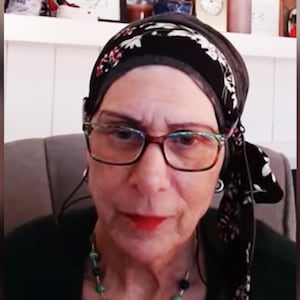Georgetown University has been taking heat after one of its law professors used a racist term to call on a student—in front of an entire class.
In a video that has since gone viral with more than 100,000 views on social media, Georgetown Law Professor Franz Werro is seen sitting at his desk during a lecture on international contracts and sales law on Feb. 10.
“So any other surprise or…? What about you, Mr. Chinaman?” he asks as he looks around then room, then points to a student in front of him.
“Sorry to not catch your name,” Werro says in the video, which was first reported by Above the Law. “Maybe you can remind me of your name.”
The video caused an uproar on social media.
“I am not often left speechless but this has left me speechless,” a Twitter user posted, garnering more than a 100 “likes.”
“‘Chinaman’ is a racial slur. It’s not funny. @GeorgetownLaw what are you going to do about this,” another user posted.
“So between this guy and Shapiro, [Georgetown University] is running quite the racist law faculty,” a third wrote, referring to former director Ilya Shapiro’s offensive comments about a Black woman being nominated to the Supreme Court. (According to The Washington Post, Shapiro has been on leave as a Georgetown Law administrator since January.)
According to the Georgetown Law website, Werro specializes in private law. He had three stints as Georgetown Law’s academic co-director and has taught at a number of colleges and universities in the U.S. and Europe.
On Feb. 11, Georgetown law’s dean, Bill Treanor, released a statement about the incident, according to Above the Law.
“I was made aware of an incident yesterday involving a professor using a derogatory term in the classroom that is demeaning and hurtful. This term is a slur with a centuries-long history of harm to Asian people,” Treanor said. He expanded on his commitment to work with Asian-based organizations at the law school. He also explained that Werro—without mentioning him by name—apologized for his mistake and that he and other faculty members would participate in cultural and diversity conversations and workshops.
“As a community of students, staff, and faculty we must take a serious look at our culture, structure, systems, and processes to ensure that we are a community that fosters respect, equity, and justice. We have significant work ahead of us to create a community in which students can learn in an environment that is free from bias, where they are able to foster positive connections with others, and where everyone feels supported and appreciated for their contributions,” Treanor continued in his statement.
Above the Law also reported that Werro sent an apology to the Georgetown law school community.
“I apologize that I used an offensive term in class yesterday,” he said. “The statement I made was just after the break in the class, during which I had enthusiastically noted the great diversity of languages spoken by members of the class. As a non-native English speaker myself, I did not appreciate that it was a derogatory term, as I now understand it is. I am very sorry I used it. I am committed to educating myself because I want all students to feel welcome in my classroom.”
In a letter slated to be given to the law school’s dean on Feb. 16, the Asian Pacific American Law Students Association at Georgetown explained that the term “Chinaman” is a slur that was used to specifically label people of Chinese ancestry as “subhuman” during the 19th century.
“This term originates from a time where Chinese laborers were paid low wages (if at all), taxed heavily, denied entry to the U.S., denied the right to citizenship…portrayed in caricatures as criminal ‘destroyer of women and children.’...That anti-Asian sentiment has never fully gone away, and it set the cultural, societal, and legal foundation on which the U.S. enacted the Chinese Exclusion Act of 1882,” the letter from the organization read.
Students in the organization said they appreciated Werro’s apology but still felt it lacked empathy. They also said the use of the slur would subconsciously keep students of Asian descent from feeling as if they have an equal chance in class. They demanded that an implicit bias class be mandatory—rather than optional—for all staff members.
Georgetown University Law School did not immediately respond to The Daily Beast’s request for comment.







